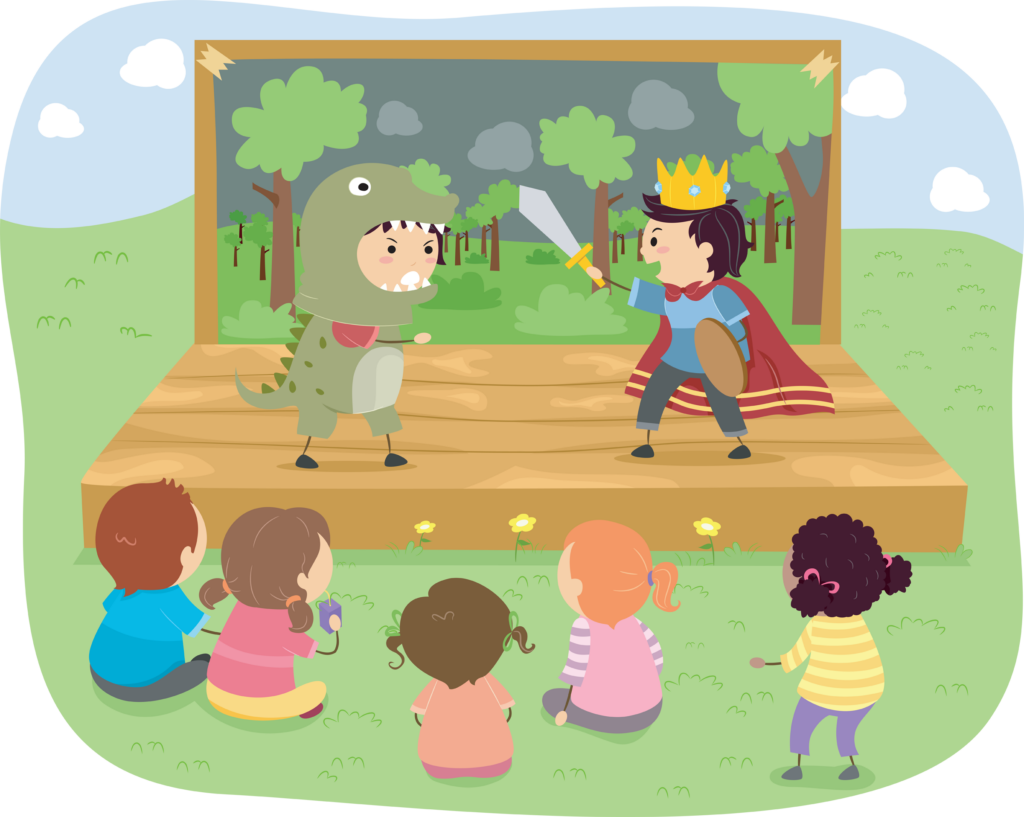
In the bustling world of academia, the arts – and more specifically, theater – often get sidelined. However, the role theater plays in child development is pivotal. The educational benefits of theater for young learners extend far beyond the stage, enriching their cognitive, emotional, and social landscapes. As educators, parents, and mentors, it’s crucial to recognize and tap into these theater-led growth opportunities for a well-rounded learning experience.
Why Theater Matters: The Core Benefits

The stage of theater is a hub of infinite learning opportunities. Every line in the script, every rehearsal, and every performance contributes to the holistic development of young learners. Here’s how:
- Improved Communication Skills: Whether a child is a main actor or a supporting player, they learn the art of clear communication, enhancing verbal and non-verbal expressions.
- Boosted Confidence: The process of rehearsing and performing bolsters self-esteem and courage, teaching young learners to voice their ideas without fear.
- Enhanced Creativity: Theater compels children to think outside the box, fostering innovation and creative problem-solving.
- Teamwork and Cooperation: Working as a part of a play teaches children about collaboration and respect for others’ contributions.
- Increased Emotional Intelligence: Theater allows children to explore a plethora of emotions, aiding in their emotional understanding and empathy.
Paving the Way: Tips for Theater Beginners

The educational benefits of theater for young learners are within reach, whether they’re theater-goers or aspiring thespians. Here are a few tips:
- Start with Storytelling: Narrating stories with expressive gestures and voices can be an excellent start to a child’s theater journey.
- Try Local Theater Performances: Encourage your child to attend local plays to immerse them in the world of theater. This will also expose them to various genres and styles.
- Enroll in Theater Workshops: These workshops provide a hands-on experience, teaching the basics of acting, directing, and stage managing in a safe and supportive environment.
- Practice Patience: Theater skills aren’t developed overnight. Remember to praise effort and improvement, not just performances and accolades.
- Encourage Experimentation: Let your child try various roles – acting, directing, designing, and even writing. This will give them a complete understanding of the theater world and can help identify their areas of interest.
Navigating the Theater Journey: Cautionary Considerations

While theater is an enriching avenue for young learners, it’s essential to remember some key considerations to ensure a smooth and beneficial journey. Here they are:
- Avoiding the Perfection Trap: While striving for excellence is admirable, remember that theater is primarily about expression, exploration, and creativity. Encourage progress over perfection to ensure a love for the craft and prevent unnecessary pressure.
- Steer Clear of Typecasting: Diversity of experience is key in theater. Encourage children to explore various roles – from acting to directing, from set design to script writing. This will provide a comprehensive understanding of theater and prevent them from being typecast early on.
- Balancing Academics and Theater: Theater, as enriching as it is, shouldn’t overshadow other academic responsibilities. Help your young learners balance their time and efforts between theater and their other subjects to ensure a holistic education.
- Managing Expectations: Every theater journey has its highs and lows. It’s essential to remind young learners that setbacks and rejections are part of the learning process. Use these moments to teach resilience and perseverance.
- Ensuring Safe Spaces: Theater should be a safe, inclusive space for expression and learning. Make sure any theater group or workshop prioritizes a respectful, inclusive environment for its participants, fostering positive interactions and personal growth.

Theater, though often under-appreciated, is a goldmine of learning opportunities. It paves the way for improved communication, enhanced creativity, boosted confidence, honed cooperation, and increased emotional intelligence. By harnessing the educational benefits of theater for young learners, educators and parents can ensure their wards’ comprehensive development. So, let the curtains rise, and let the world of theater craft the learners of tomorrow.




